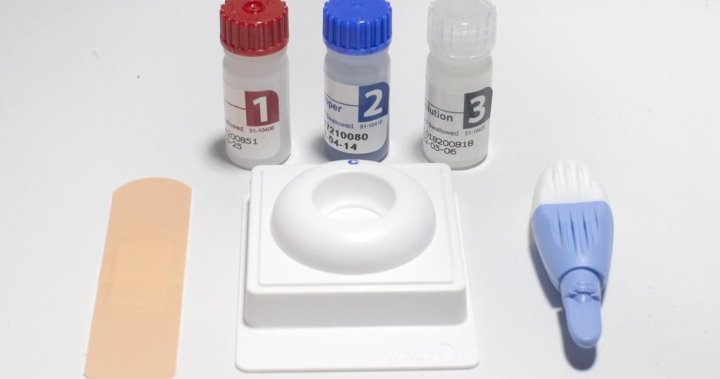For nearly a year and a half, a federally funded program has enabled sexual health advocacy organizations to distribute take-home HIV tests across Canada.
This infrastructure funding is scheduled to expire at the end of this month.
“It’s really unfortunate that this situation can’t continue,” said Chris Aucoin, executive director of the Nova Scotia AIDS Coalition.
“We’re going to try to do the best we can with the resources we have and continue to make testing available. But obviously that’s going to have very limited implications moving forward.”
The Nova Scotia AIDS Coalition served as the province’s central distribution hub, anonymously mailing tests, handing them out in person, and visiting rural communities.

The organization’s work aims to address barriers, combat prejudice and educate the public.
“My understanding from the Public Health Agency of Canada is that we will continue to have access to testing for free,” Aucoin said. “That’s good news, but with funding ending on March 31st, all overhead costs like shipping and advertising are gone, as well as staff time and other costs.”
Get the latest health and medical news delivered to your email every Sunday.
Get the latest health and medical news delivered to your email every Sunday.
The Public Health Agency of Canada (PHAC) told Global News it “continues to evaluate options to make HIV self-testing kits available to community-based organizations beyond March 31, 2024.”
The federal government’s 2020 goal to address global HIV has already been missed, but advocates say the government will eliminate HIV/AIDS as a public health threat by 2030. We look forward to making investments to achieve our next goals.
“They seem to be hinting that they wanted to do more,” Jodi Jollimore, executive director of the HIV and hepatitis C information group CATIE, said of PHAC.
“Maybe there is a door open here to continue the conversation and remind us that we can’t achieve these goals unless we do something different.”
The self-testing program had a time limit, but Jollimore believed that if it was an overwhelming success, he could persuade the government to reinstate funding.
“Almost half of the people we tested were first-timers, which is a very high success rate,” Jolimore said. “We know that a group of people who have HIV but did not know they were infected with HIV have been identified as part of this project. It’s a big win for the whole thing.”
Aucoin said efforts across Nova Scotia have allowed many people under 30 to get their first test.
“Now we’re going to have to scale back again, which is disappointing,” Aucoin said.
“I also worry that people who might have benefited from that over the next 12 months will now not be able to do so. Is there a possibility?”
© 2024 Global News, a division of Corus Entertainment Inc.



